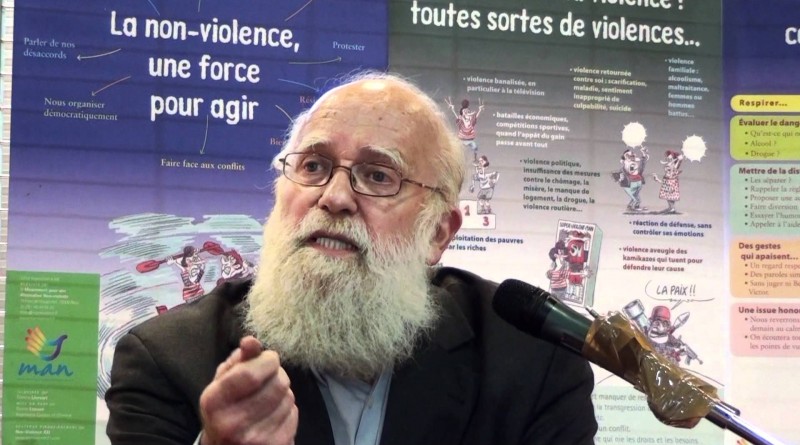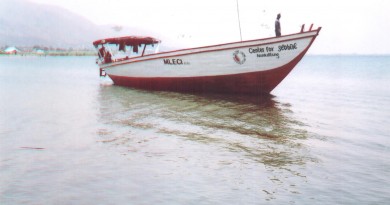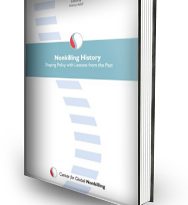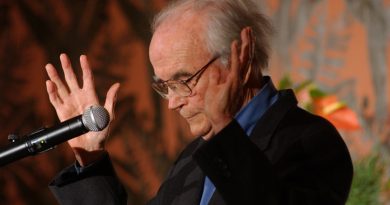New book: “The Principle of Nonviolence: A Philosophical Path”
The Center for Global Nonkilling has just launched an historic translation of of Le principe de non-violence: Parcours philosophique by French philosopher-writer-activist Jean-Marie Muller. The book, now published as The Principle of Nonviolence: A Philosophical Path was first published by Desclee de Brouwer in Paris in 1995.
The introduction to the first edition succinctly summarizes the significance of Muller’s unique contribution: “The goal of this book is to found a philosophical concept of nonviolence….[It aims] to challenge once and for all the ideology that violence is necessary, legitimate, and honorable….Never apparently has this been accomplished in such a masterly and complete manner.”. This unique exploration of nonviolence, that also serves as a basis for the philosophical understanding of nonkilling, is now available in English and can be ordered in print or Kindle following the links in CGNK’s book section.
As the reader will discover the publication of this book by the Center for Global Nonkilling is appropriate because the ethic of “nonkilling” underlies all discussions of nonviolence in the text. Frequently it becomes sharply explicit. But while nonkilling is upheld as the ultimate truth to be pursued as the sustainer of human life—as in the biblical commandment “Thou shalt not kill”—Muller’s philosophical inquiry does not pursue it as a matter of “absolutist abstraction.” “Philosophical reflection does not allow us to assert that nonviolence is the answer that offers the technical means to face political realities under all circumstances, but it leads us to assert that it is the question which, in the face of political realities, allows us to look for the best answer under all circumstances.”
Jean-Marie Muller, born in France in 1939, identifies himself as a philosopher and writer. He is also an experienced nonviolent activist, consultant, workshop trainer, and institution-builder. By 1995 when Le principe de nonviolence was published—beginning in 1967 with conscientious objection to military killing—he had experienced periods of imprisonment; a hunger strike in solidarity with farmers to regain Larzac farmlands requisitioned for a military base; a hunger strike to protest sale of French Mirage fighters to Brazil’s military regime; and had been arrested aboard the peace yacht FRI protesting French nuclear weapons tests in the South Pacific. He had journeyed for research, conferences, workshops, and trainings in 13 countries, including the United States and India, most frequently to Colombia and Chad. He had published 13 books, including on César Chávez and Gandhi on whom he is an acknowledged expert, plus many articles in the journal Nonviolence Actualité which he helped to found. He had participated in founding the Institute for Research on Nonviolent Conflict Resolution continuing to serve as research director.




